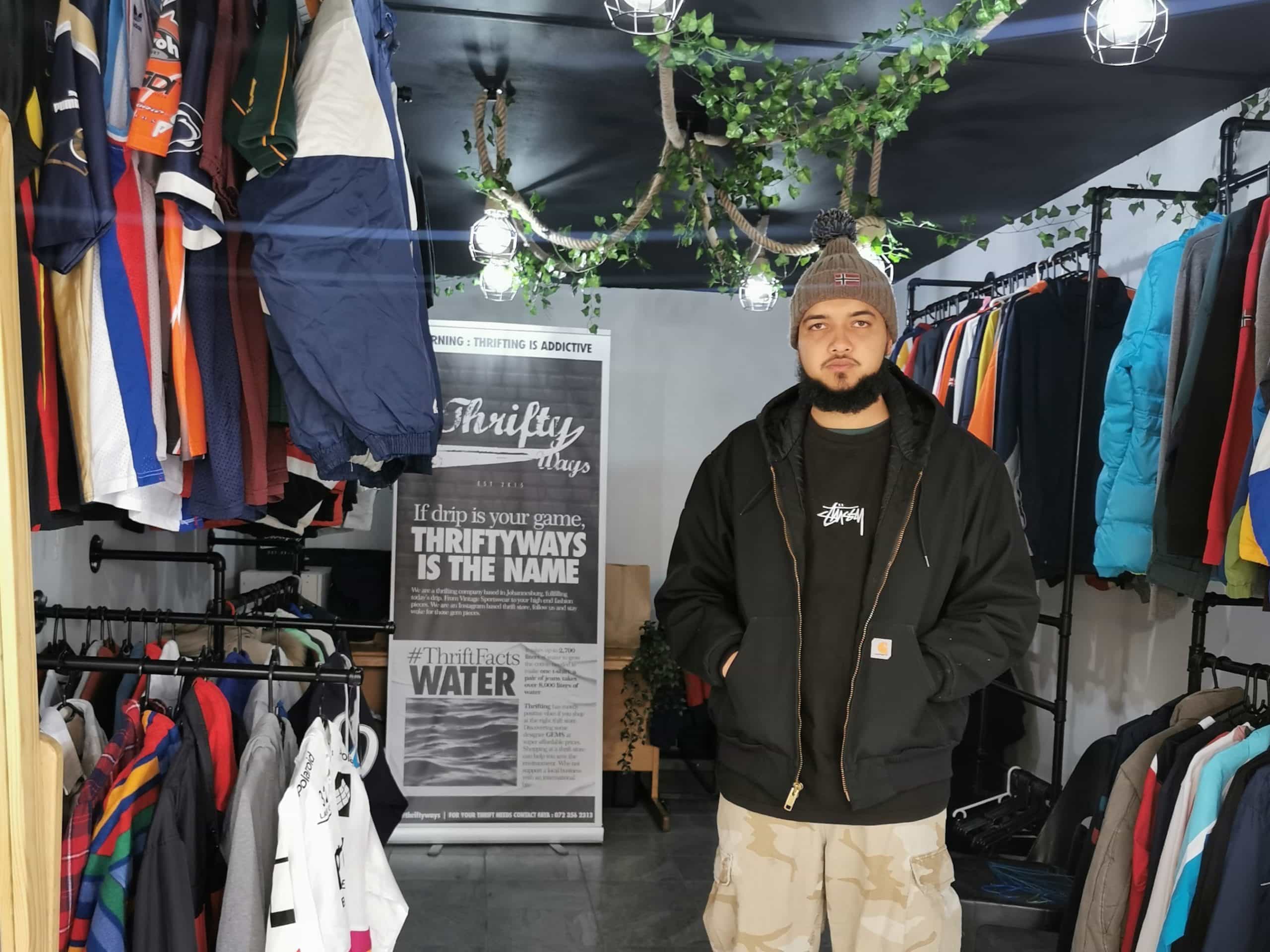Online thrift shopping has become hugely popular among the close-fisted but style-conscious consumer wanting brands for less in South Africa. Showing the way is this entrepreneur with an eye for slow fashion.
By Ross Holland
Surely, you have heard about e-commerce, but ‘re-commerce’?
Loosely defined, it’s known as reverse commerce or re-selling previously-owned or previously-loved products through physical stores or online distribution platforms.
Going into this further is the trend of ‘online thrifting’, a form of re-commerce becoming increasingly popular in Johannesburg in 2022, according to Fayyaadh Limbada, the founder and owner of ThriftyWays, an online medium selling second-hand and used clothes.
He should know. The 20-something entrepreneur started his thrift store in 2015 while still in university. The pandemic proved to be a boon for this budding businessman as more people took to spending conservatively through the lockdown period.
“I experienced spikes in sales in 2020, this was when the Covid pandemic hit and a hard lockdown followed here in South Africa,” Limbada begins, in an interview with FORBES AFRICA.
“Re-commerce is important as it gives clothing a second chance and slows down the production of cotton, which helps us go green,” says Limbada.
He adds that there is a certain eye you need in this industry to be able to tell the difference between ‘slow fashion’ and ‘fast fashion’.
Limbada explains that fast fashion only lasts a season at most, while slow fashion captures a trend in such a way that it looks timeless and provides the wearer with the opportunity to stand out.
His online outlet, ThriftyWays, features an array of American pro sports athletic hoodies and jackets from all sport codes such as American ice hockey, American football and baseball, even the occasional La Crosse team sweatshirt.
Limbada mentions that his apparel is curated in such a way that each item is placed along with other items of a similar price, in order to give a feeling of consistency and offer more bang for your bucks.
The most expensive item he ever sold was a Canada Goose jacket for R4,000 ($237). These jackets and coats are exclusive and normally retail between R10,000 ($593) to R28,253 ($1,667).
Thrift entrepreneurs are usually discreet and tight-lipped about where they source their goods from and Limbada is no different – given the serious competition they face and the fact that they are only as good as the quality and exclusivity of the goods they sell.
Good suppliers are hard to come by and cater to everyone and anyone willing to buy from them.
“Your supplier isn’t just your supplier, he supplies your competitors too,” Limbada says.
Even so, thrift shopping for the consumer is an exciting process, Limbada explains, as there is something cool and quirky about it.
From old school Liverpool F.C. team jerseys to classic Gucci sport coats or even a Cooperstown collection Boston Red Sox hoodie, it’s all there for the asking at the multiple thrift stories mushrooming in Johannesburg selling sports goods.
Limbada equates this form of shopping to a “lucky packet” – you never know what’s inside the packaging or in this case, what’s on the pages of his online thrift platforms as you’re “always in for a surprise”.
The spike in sales and customer traffic for his online business has resulted in Limbada now opening his first physical, brick-and-mortar store in the city.
The entire process of store-to-door would be easier for the customer and it would grant Limbada an opportunity to house more stock and do more business.
Entrepreneurs like Limbada continue to add color and texture to the fast-paced fashion industry in South Africa’s bustling streets with his version of slow fashion that’s also good for the planet.
